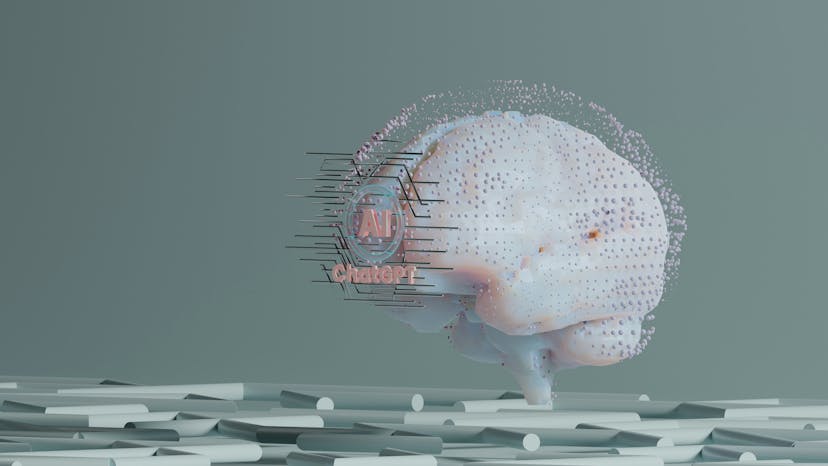
The Real Threat to SEO Isn't AI — It's Poor Strategy
The narrative around AI "killing SEO" is gaining a lot of momentum right now.
What's actually killing SEO performance is something far more fundamental: the belief that technology can replace strategic thinking. While everyone's panicking about AI disruption, the real threat to your search visibility is sitting much closer to home - it's your approach to strategy itself.
The Misconception of AI as the Main Threat to SEO
This may be a hard pill to swallow, but most SEO failures aren't caused by algorithm changes or AI disruption. They're caused by businesses treating AI as a strategic silver bullet rather than what it is – a powerful tool that amplifies whatever strategy you already have in place.
The digital marketing landscape is littered with companies that invested heavily in AI-driven solutions while completely ignoring foundational SEO principles. They're automating broken processes and wondering why their results haven't improved. This isn't innovation; it's expensive procrastination.
The real damage happens when businesses abandon human insight in favor of AI efficiency. For B2B SaaS, eCommerce, and cybersecurity companies, this often means producing generic content that completely misses the mark with technical audiences who can spot inauthentic messaging from a mile away. This leads to wasted budgets on ineffective AI-driven solutions that generate traffic but zero meaningful engagement.
Understanding AI's Role in SEO
AI excels at organization, automation, and initial content generation. It can help you surface keyword insights, structure content calendars, and draft first passes of copy. But here's where the confusion starts – AI doesn't understand your brand voice, your customers' specific pain points, or what content actually drives business impact for your particular market.
AI-generated content often lacks the originality and depth that Google increasingly rewards. It remixes existing material rather than offering unique insights, and search engines are getting better at identifying and penalizing this approach. More importantly, it can't make the strategic judgment calls that separate effective SEO from busy work.
For example, AI might identify content gaps in your industry, but it can't determine which gaps actually matter to your target customers or align with your business objectives. It can draft a blog post about cybersecurity trends, but it can't ensure that the content speaks to the specific compliance challenges your enterprise clients face.
Human expertise remains essential for translating data insights into actionable strategies that resonate with real audiences and drive tangible business outcomes.

Common Strategic Failures
The biggest SEO mistakes we see at Be the Buzz aren't technical, they're strategic. Companies are chasing high-volume keywords with zero purchase intent, essentially optimizing for traffic that will never convert. This is particularly damaging for B2B companies where the sales cycle is long and the wrong traffic can actually hurt more than help.
Another widespread failure is publishing AI-generated content without considering the customer journey. Content that doesn't align with where prospects are in their buying process creates friction instead of momentum. We see SaaS companies writing generic "what is" content when their audience needs detailed implementation guides and ROI calculators.
Technical SEO fundamentals are often overlooked in favor of content volume. Sites with poor loading speeds, mobile experience issues, and indexing problems wonder why their content isn't performing. Meanwhile, their competitors with solid technical foundations are outranking them with less content but a better user experience.
The most damaging failure is inconsistent messaging that confuses potential customers. When your SEO content doesn't align with your overall brand strategy, you're essentially competing against yourself in the market.
The Strategic Framework for 2025
So, what’s to be done? Effective SEO in 2025 starts with audience-first thinking. For B2B SaaS companies, this means understanding not just what your prospects search for, but why they're searching and what they need to move forward in their evaluation process.
Search intent mapping becomes crucial, aligning your content with user queries at every stage of the buyer journey. A cybersecurity company shouldn't just target "network security" but should understand the difference between someone researching basic concepts versus someone evaluating specific solutions.
Content quality trumps quantity every time. One well-researched, expertly crafted article that addresses real customer challenges will outperform ten generic posts every time. This is especially true for technical audiences who can immediately identify surface-level content.
Technical health remains foundational. Fast loading times, mobile optimization, and clean site structure aren't optional; they're prerequisites for everything else to work. Integration with conversion paths ensures that SEO attracts the right traffic and guides it toward meaningful business outcomes.
AI as a Supporting Tool
The most successful companies use AI to scale what already works, not to compensate for what doesn't. AI excels at brainstorming content ideas, analyzing competitor strategies, and organizing workflows. But strategic direction must come from a deep understanding of customer needs and market dynamics.
Businesses that integrate AI with human expertise see better results because the human element ensures content meets E-E-A-T standards (Experience, Expertise, Authoritativeness, Trustworthiness). For industries like cybersecurity and SaaS, demonstrating genuine expertise isn't optional; it's essential for credibility.
Use AI for performance analytics to identify improvement opportunities, but rely on human analysis to derive actionable insights. AI can help personalize user experiences, but strategic direction must come from understanding what actually drives customer behavior in your specific market.
The key is maintaining the balance between AI efficiency and human creativity. AI handles the heavy lifting; humans provide the strategic thinking and quality control.
Strategic Insights for Effective SEO
AI presents exciting possibilities, but the real threat to SEO effectiveness remains poor strategic execution. The companies thriving in today's search landscape aren't necessarily the ones with the most advanced AI tools — they're the ones executing a well-defined SEO and content strategy.
A balanced approach that combines AI efficiency with sound strategic principles yields the best results. This means continuous learning and adaptation, but always within the framework of clear business objectives and customer understanding.
User-centric content creation fosters long-term relationships and enhances brand authority, a quality that becomes increasingly valuable as search engines prioritize expertise and trustworthiness. Investing in team training on SEO best practices ensures that everyone contributes to an effective strategy, rather than working at cross-purposes.
The bottom line is that AI isn't killing SEO. Poor strategy is. If your SEO isn't delivering results, audit your approach before blaming the algorithm. The fix usually lies in changes to your strategy and approach, not just technological solutions.
Ready to build an SEO strategy that works? At Be the Buzz, we help B2B SaaS, eCommerce, and cybersecurity companies develop comprehensive SEO approaches that combine AI efficiency with strategic expertise.
Let's discuss how to align your search strategy with tangible business outcomes.



